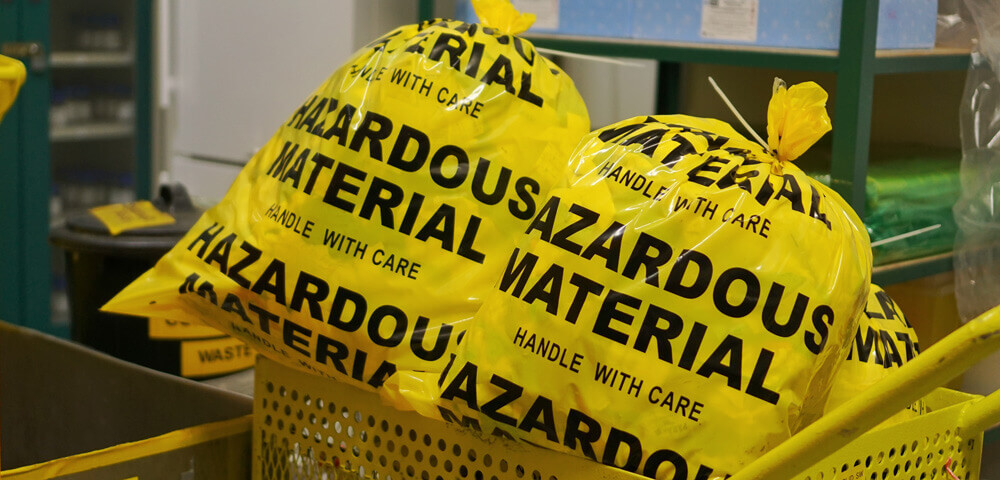
/ IN THIS BLOG
01 / How do state hazardous waste management laws differ from federal ones?
For this reason, individual states can differ from federal guidelines about what is a hazardous waste and how it should be handled. More importantly, state regulations for hazardous waste management are often stricter than their federal counterparts.
So, while it’s necessary to know what the EPA requires for successful hazardous waste management, it’s not wholly adequate. States can impose more-restrictive regulations—and they commonly do.
For this reason, as a service to our customers nationwide, we occasionally zero-in on a particular state to review its regulations for hazardous waste disposal; and the present blog focuses on Pennsylvania hazardous waste regulations.
02 / How does Pennsylvania classify hazardous waste?
- Listed wastes. Pennsylvania uses the federal lists of specific materials deemed to be hazardous by the EPA. There are more than 500 such substances published in the Code of Federal Regulations (40 CFR Part 261) across four separate lists. Thus, “listed waste.”
- Characteristic wastes. If a waste isn’t “listed” (see A), it might otherwise be considered hazardous in Pennsylvania for one or more of its characteristics. Thus, “characteristic waste.” These characteristics are:
03 / Who generates hazardous waste in Pennsylvania?
The steel industry accounts for over one third of the hazardous waste generated in Pennsylvania. Other major sources are companies involved in:
04 / How are different-size hazardous waste generators regulated in Pennsylvania?
05 / How is hazardous waste managed in Pennsylvania?
- Source reduction. Hazardous waste generators are encouraged to minimize the amount of hazardous waste they produce by eliminating production steps, introducing new technologies, etc.
- Reuse/recycling/recovery. Many hazardous wastes can be recycled, reused, or recovered. E.g., solvents can be refined and recycled, thereby reducing the need for hazardous waste disposal.
- Treatment. Waste that cannot be reduced or recycled is treated to change its chemical composition, thereby reducing its volume, rendering it non-hazardous, or both.
- Storage. Hazardous waste may be stored until it can be recycled or treated. The amount of waste and the length of time it can be stored depends on the size of the hazardous waste generator.
- Disposal. Hazardous waste transported for offsite treatment, storage, or disposal must be accompanied by an EPA Uniform Hazardous Waste Manifest that accompanies the waste from the point of generation to its ultimate disposal site
06 / How is hazardous waste transported in Pennsylvania?
07 / How is hazardous waste ultimately disposed of in Pennsylvania?
In Pennsylvania, hazardous waste is disposed of by landfilling or incineration. Landfilling is used only after the waste has been treated and stabilized.
08 / How are hazardous waste generators in Pennsylvania kept current about hazmat rules?
09 / Where can I get help understanding Pennsylvania hazardous waste management rules?
You need a hazmat solution that will maximize efficiency, lower the cost, and minimize the compliance risks of doing business in your state. And with over 30 years of nationwide experience specializing in hazardous waste management, you can trust MCF specialists to know what might make Pennsylvania—or any other state—unique in matters of hazardous waste disposal.
Don’t go it alone.
We can help you develop a hazardous waste management protocol that takes into careful account the regulatory complexities of your particular state or region to achieve the highest standards of sustainability.
For more information, contact us today. Or phone 866.315.8116








